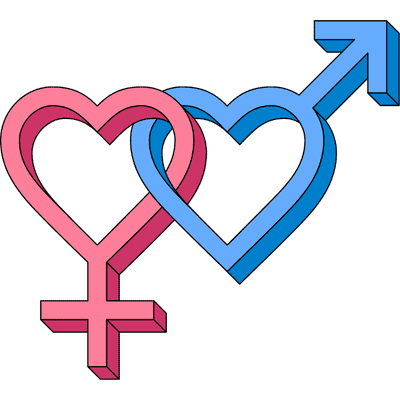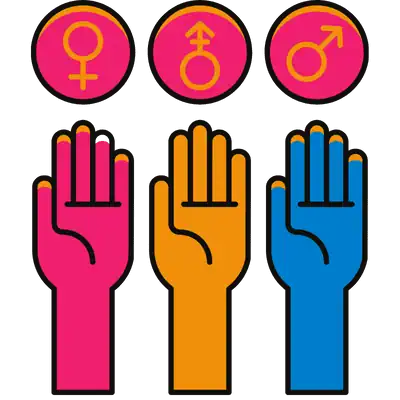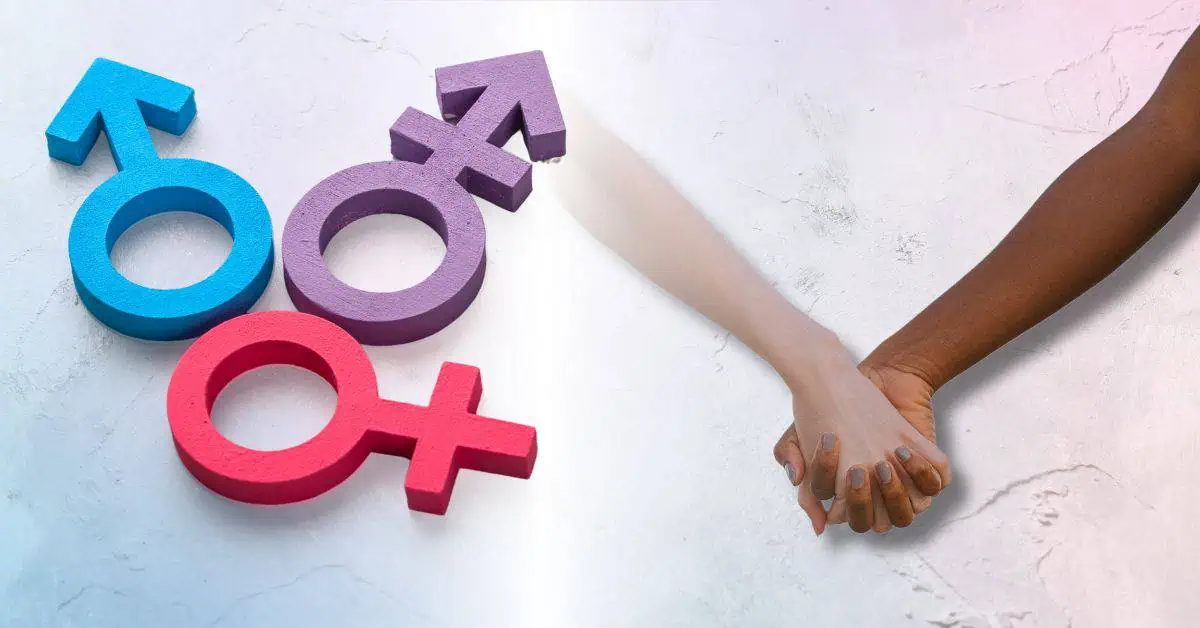Millennials are putting an entirely new spin on what it means to be in a romantic relationship—they are moving away from the conventional roles that were laid out by earlier generations. This shift sees them delaying marriage, cohabitating, and reshaping all of the traditional gender roles to suit their own values and lifestyles. Why? Because they view each other as equals, and we are here for it!
With an emphasis on equality, communication, and partnership, Millennials are establishing new rules in love that are influencing how relationships are formed, maintained, and perceived in contemporary society. What exactly is their approach to gender roles and equality when it comes to partnerships? Let’s see how they’re doing it!

The Millennial Mindset on Marriage and Cohabitation
Millennials are marrying later in life compared to previous generations, with many prioritizing personal development, education, and career advancement before settling down!
According to the Pew Research Center, “A majority of Millennials are not currently married, marking a significant change from past generations. Only 44% of Millennials were married in 2019, compared with 53% of Gen Xers, 61% of Boomers, and 81% of Silents at a comparable age.
“What does marriage look like for Millennials who have tied the knot? They are getting married later in life than previous generations. The median age at first marriage has edged up gradually in recent decades. In 2019, the average man first got married at age 30, and the average woman was 28 when she first wed. This is three years later – for both men and women – than in 2003, four years later than in 1987 and seven years later than in 1968.”
This waiting for marriage (not in the biblical sense) and the acceptance of alternative forms of partnership shows a changing mindset to much more flexible views on life and relationships. What does that look like for those who are sharing their lives? Cohabiting before marriage.
“As Millennials delay marriage, a significant share are living with a romantic partner. In 2019, 12% of Millennials were living with an unmarried partner – higher than the share of Gen Xers (8%) who were cohabiting in 2003,” says the study. “Cohabitation is more common among Millennials than Gen Xers across most racial and ethnic categories, as well as educational attainment.
“White Millennials are more likely than other racial and ethnic groups to be currently cohabiting with a partner: 14% of whites do, compared with 11% of black, 12% of Hispanic and 6% of Asian Millennials. Millennials with less than a college education are more likely to live with a partner than are those with a bachelor’s degree (13% vs. 11%). Even so, the share of college-educated Millennials who are cohabiting is substantially higher than it was for college-educated Gen Xers at a comparable age.”

Egalitarian Beliefs and Practices
A majority of Millennials express overwhelming support for gender equality, and this goes beyond the workplace and into the domestic sphere, but the struggle isn’t over.
Psychology Today set out to find just how forward-thinking Millennials are about gender equality in all areas of life, and this is what they discovered.
“Truly traditional people, those who do not believe in equal rights for women at home or at work, have nearly disappeared. In 1977, less than a quarter of the population felt women and men should be equal. Back then, the majority of Americans supported very traditional roles for women and men. They felt that women were unsuited for politics and that they should focus on raising children and not participate in the labor force. By 2016 these traditional views were virtually non-existent, with only 7 percent of the population holding such beliefs. The proportion of those with egalitarian beliefs has tripled to 69 percent of the population. In forty years we have gone from just a quarter to more than two-thirds of Americans believing in gender equality at both work and home. Given that men have ruled the public sphere throughout human history, the pace of change has actually been quite startling. While there have been ebbs and flows, particularly at the turn of this century, egalitarian beliefs have increased over the years, and recent trends indicate that they will only continue to become more common,” the research showed.
“Those who held traditional views were replaced by individuals who support gender equality at work but not at home. We call these people ambivalent, because they embrace some, but not all aspects of equality. The majority of these ambivalent people support women’s equal participation in the public sphere, but hold on to traditional beliefs about women’s responsibility for childrearing and family labor. A quarter of the population still hold such ambivalent views, but this shouldn’t overshadow the biggest finding, that more than two-thirds of Americans now fully endorse egalitarian beliefs. What did we learn about generational change? Millennials are the generation most likely to hold egalitarian views. More than three-quarters of Millennials felt women and men should be equal in both the public sphere of work and the private sphere of the family. Indeed every generation is more liberal than the one before.”

Sexual and Emotional Intimacy
When it comes to sexual intimacy, Millennials have completely transformed the old ways. This generation is light years ahead of boomers and Gen Xers about consent, communication, and mutual satisfaction. Traditional expectations around sexuality are being challenged, allowing couples to explore their desires more openly and equitably. This change shows a bigger trend of actually acknowledging and valuing personal preferences and boundaries in relationships.

Cultural and Educational Influences
Cultural background and education also play big roles in shaping attitudes toward relationships and gender roles among Millennials. Again, the Pew Research Center studied why it shakes out this way.
“Millennials are more educated than previous generations of young adults, and they’re more likely to be married to someone who shares their educational credentials. Among married Millennials with a bachelor’s degree or more education, 75% are married to another college graduate. This is higher than Gen Xers (68%), Boomers (63%) or Silents (52%) when they were the age Millennials are now. Some 16% of Millennials with a bachelor’s degree married someone with some college education, 9% are married to a high school graduate, and 1% of Millennials with a college degree married someone with less than a high school education,” reports Pew.
“College-educated Millennial women are less likely to have a spouse with a college degree than are their male counterparts (70% vs. 82%). This was also the case for Gen Xers (66% of college-educated Gen X women were married to someone with a bachelor’s degree, compared with 70% of college-educated Gen X men). This disparity can be explained by recent data showing more women are graduating from college than men, thus making the ratio of college-educated men to women unbalanced (fewer men than women).
“The pattern was the opposite for Boomers and Silents: Men were less likely to marry someone with a college degree than women. This reversal can be partially attributed to the fact that, during this time, fewer women went to college, resulting in a smaller pool of college-educated women for men to marry. Across all levels of education, Millennial men are more likely than women to marry someone with higher educational credentials. For example, 18% of Millennial men with a high school diploma or less marry someone with a bachelor’s degree or more (compared with 9% of Millennial women). Some 33% of Millennial men with some college education marry someone with a bachelor’s degree or more (compared with 22% of Millennial women).”
Challenges and Progress
Despite this generation’s progressive tendencies, the trajectory to gender equality in relationships is not without roadblocks. There are issues like the persistence of gender stereotypes, the distribution of domestic responsibilities, and the impact of cultural expectations that keep challenging the balance within romantic relationships. Moreover, while Millennials are generally way more open and egalitarian, disparities still exist, and probably always will, as factors like race, ethnicity, and economic status influence them.
Millennials are leading the way in reshaping what relationships look like, moving away from old-school gender roles toward more balanced romantic partnerships. This change mirrors a larger shift in society towards embracing gender equality, fueled by more open and honest discussions about these kinds of issues. As Millennials grow older and continue to impact cultural norms, their approach paints a more optimistic picture of future relationships that are marked by fairness and mutual respect for one another—and that’s a pretty picture!
